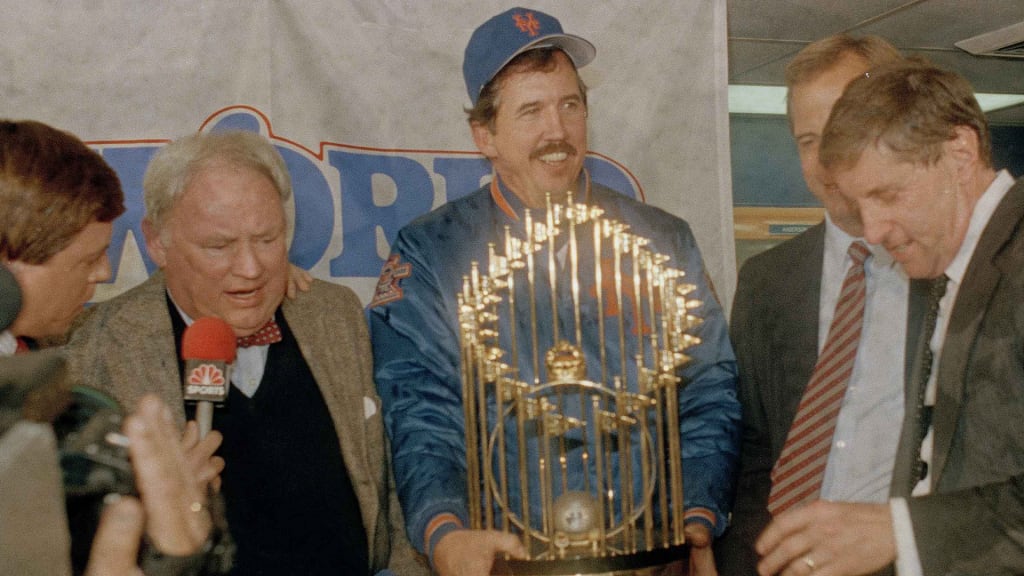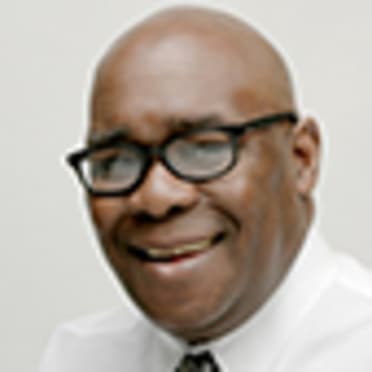
On October 13, 1983, the Mets hired Davey Johnson as their 11th manager. Johnson won a franchise record 595 games in six-plus seasons and guided New York to its last World Series title in 1986.
In a phone interview with MLB.com on Friday, Johnson answered a wide range of questions about his time in New York, from his relationship with former GM Frank Cashen to the one regret he had while with the club.
MLB.com: Forty years ago, Cashen introduced you as the manager of the Mets. Do you remember what you said at the press conference?
Davey Johnson: I remember saying, “I like to work for smart people.”
MLB.com: You also wondered what took so long for the Mets to hire you. Is it hard to believe it has been 40 years since you were named the Mets' manager?
Johnson: Time flies. When you are 80 years old, you can remember some things going way back, but, heck, you forget something about yesterday.
MLB.com: From the start, you had centerpieces such as Keith Hernandez, Darryl Strawberry and Dwight Gooden. Tell the story about Gooden, because Cashen did not want him on the Opening Day roster. How did you convince Cashen to put him on the roster?
Johnson: It was pretty easy. The problem was, Cashen didn’t see talent on the level that I saw it, whether it was Lenny Dykstra or Kevin Mitchell -- guys I thought were instrumental to our club. He traded them all. [Cashen] might have disagreed with what I thought, but the manager lives with the players, knows them. The manager hears the heartbeat. I had Dwight Gooden when he was 18. He was from Single-A Lynchburg. He came over to [Triple-A] Tidewater for two weeks. At 18, he could paint [the corners]. He knew the idea of keeping the ball down.
First of all, I met Dwight’s parents. He is a local kid from Florida. He had such a great upbringing. He was [saying], “Yes, sir. No, sir.” When I met him, he was one hell of a kid. He didn’t show me anything different. It was nothing but respect. He was always on time, always smiling.
MLB.com: Ever since we first met in 2010, you always said Mitchell received a bad reputation he didn’t deserve. Why did you think he received this bad reputation, and was a positive influence in the clubhouse?
Johnson: I saw him swing the bat. When I saw him, he was playing in the Minor Leagues. I got to know him. We would talk. I knew he didn’t drink or smoke or do drugs. He came from the roughest part of San Diego. [The Mets] knew he didn’t drink or smoke, but they probably thought Kevin McReynolds was a better fit. I even fought with Mitch. But you know about a guy for what he stands for. You don’t blame him for it. You think of it as strength.
MLB.com: We talked about the young players on the team, but we haven’t talked about Hernandez and Gary Carter. Of the two, who made this young team go?
Johnson: Two different people entirely. Keith was a free spirit, telling jokes and reading the history of the Civil War. On the field, he led by example. Everything he did was by example. He was the captain of the infield. They would throw bad balls to first base, and he would catch them. He was the captain. He would settle the pitcher down. I never really had to say anything to him.
Carter was a totally different guy. He was very deep in thought. He kept a chart on every pitcher and every hitter he played against. I knew all of that. He led by example in working with the pitchers.
After Carter’s leadership came in, I named him co-captain. So we had one captain with the everyday players and one with the pitchers. That was perfect. You can’t get any better than that with two great players.
MLB.com: Do you realize what you accomplished with the Mets? You are the winningest manager in their history. What does that mean to you?
Johnson: I accomplished what I set out to do. Made sure I put the right pieces in the right spots. I was an army brat. I was always told to never go over the boss' head. So I never really had any conversations about players with [owners] Nelson Doubleday and Fred Wilpon. I went strictly to the GM. I think that was a fault because I was always taught if he doesn’t go along with what you [think], that’s tough luck because he is your boss.
MLB.com: That’s the GM. You are talking about Cashen?
Johnson: The GM is your boss, so I never went to ownership. Later in my career, I learned that a lot of managers have a great relationship with ownership. That’s why they never got rid of them. I never could do that. If I start talking business with the owner, I’m going over my duty and not pledging allegiance to my boss.
MLB.com: So you are saying, in retrospect, you wished you had a relationship with ownership.
Johnson: I could have had one. I could have talked to Nelson Doubleday. He loved taking care of me and the coaches on the golf course and I loved him. But if I talked to him about baseball, I could have been there forever. But I felt I should just talk to the GM.
MLB.com: Besides the Mets, you managed the Nationals, Orioles, Reds and Dodgers. Do you think you are a Hall of Fame manager?
Johnson: I don’t think anything about that. That’s the least of my worries. After I retired in 2013, my job is being a good father and husband. I take care of my dogs, chickens, and I have good properties now. When I look back on my [managerial] career, I hope I gave everybody chances. I also hope I didn’t abuse the pitchers and hurt their careers.
